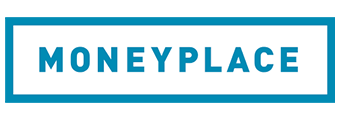
Property ownership is said to be the ‘Australian dream’. Thousands of Aussies join the property ladder each year, with many assuming their home will be their most valuable investment.
And one of the most effective ways to potentially add more value to your home is to renovate. That might mean setting aside a few weekends to paint, put in a pool, or completely overhaul your home in a bid to make it fresh and modern.
Whatever your home renovation plans, you’ll almost certainly need cash to make it happen. But if you don’t have the spare funds lying around right now, you’ve got a few options.
There are many loan products out there that Aussies can use to finance a home renovation. The two major options being a personal loan or a construction or renovation loan. The main difference is that a personal loan is usually for smaller amounts and smaller projects, while construction loans are usually for more substantial projects such as major renovations and additions.
If you’re considering renovating in hopes of increasing the value of your home in the next 12 months, you’re far from alone.
Construction finance-focused brokerage firm Resolve Finance recently found a third of Aussie homeowners are in the same basket.
That’s likely another unexpected impact of the pandemic, according to Resolve Finance general manager Sandy Paravizzini.
“For many people the pandemic led to the transformation of homes into multifunctional spaces, and this sparked a notable rise in people renovating and enhancing their homes to support a productive work environment,” Mr Paravizzini said.
“In tandem we are also seeing uncertainty in interest rate movements, so another cohort of homeowners are staying put and renovating their homes to increase the value and provide them with the necessary improvements to extend their stay until they choose to move.”
Personal loan
Many lenders offer personal loans, allowing customers to borrow an agreed amount. The borrower will then pay back the loan, plus interest, over a set amount of time – generally around seven years.
People often turn to personal loans to pay for things like holidays, weddings, and, of course, home renovations.
Some lenders even call certain personal loan products ‘renovation loans’. Typically, the main difference between a renovation loan and a personal loan is the name.
If your renovation job is a small one, or you’re expecting to freshen up your home on the cheap with plenty of DIY, this could be the right loan option for you.
Like home loans, personal loans come with either fixed or variable interest rates. However, they differ in other notable ways.
“Personal loans generally offer a much higher interest rate,” Mr Paravizzini told InfoChoice.
“They also have a shorter loan term. Generally, personal loans are over a five or seven year period, whereas a home loan can be over a 30 year term.”
Personal loans can be secured or unsecured. To sign up for a secured loan, you’ll need to give a lender the right to remove an asset from your possession if you fail to pay. Thus, secured loans generally come with lower interest rates as they’re less risky for a lender.
Advertisement
| Lender | Car Loan | Interest Rate | Comparison Rate* | Monthly Repayment | Interest Type | Secured Type | Early Exit Fee | Ongoing Fee | Upfront Fee | Total Repayment | Early Repayment | Instant Approval | Online Application | Tags | Features | Link | Compare | Promoted Product | Disclosure |
|---|---|---|---|---|---|---|---|---|---|---|---|---|---|---|---|---|---|---|---|
5.76% p.a. | 5.76% p.a. | $384 | Fixed | Unsecured | $0 | $0 | $275 | $23,066 |
| Promoted | Disclosure | ||||||||
5.95% p.a. | 5.95% p.a. | $386 | Fixed | Unsecured | $0 | $0 | $0 | $23,171 |
| Promoted | Disclosure | ||||||||
5.95% p.a. | 5.95% p.a. | $386 | Fixed | Unsecured | $0 | $0 | $0 | $23,171 |
| Promoted | Disclosure | ||||||||
7.54% p.a. | 9.08% p.a. | $401 | Fixed | Unsecured | $0 | $0 | $595 | $24,068 | |||||||||||
6.78% p.a. | 7.17% p.a. | $394 | Fixed | Secured | $0 | $0 | $275 | $23,637 | |||||||||||
6.84% p.a. | 7.19% p.a. | $395 | Fixed | Secured | $0 | $0 | $250 | $23,671 | |||||||||||
6.30% p.a. | 6.30% p.a. | $389 | Fixed | Unsecured | $0 | $0 | $0 | $23,367 | |||||||||||
7.99% p.a. | 15.74% p.a. | $405 | Fixed | Unsecured | $0 | $0 | $0 | $24,326 |
Construction loan
If you’re planning a large or costly renovation, you might turn to a construction loan. A construction loan is a type of home loan designed specifically for building new houses and undergoing large-scale renovations.
This type of finance product is sometimes called a building loan, home improvement loan, or another combination of the above.
The nitty-gritty details of construction loans can differ between lenders but many will require a minimum loan amount of $150,000 - so the renovation might need to be substantial.
Usually, you’ll be allowed access to your borrowed cash as you need it, rather than in a lump sum. This might let you pay invoices and material costs as they come and save you paying interest on money you haven’t needed yet.
Sometimes a lender will want to pay the borrowed money directly to a builder or trade, bypassing the borrower entirely.
“A personal loan is probably more suitable if it's a small scale improvement, Mr Paravizzini said.
“But if it's a larger scale, I would highly recommend reaching out to your bank or to your broker to research the options around using the equity in your existing home to take advantage of a much lower interest rate, and then also having a longer loan term of up to 30 years.”
How does a construction loan work?
A construction loan is normally assessed based on the estimated value of your home when you complete your planned renovation.
Construction loan payouts are usually delivered in six stages so you don’t have to pay interest on the entire cost of the works from the start. Rather, you’ll only pay interest on the cash you’ve spent.
On top of that, it's likely you’ll be able to pay only interest until your project is complete. At which point, you’ll need to start back principal payments on top.
Construction loans can have loan terms of up to 30 years – just like a regular home loan - and revert to a regular P&I loan after.
But there are downsides to construction loans. They generally come with higher interest rates than regular home loans, as they’re often riskier for a lender.
Your lender will also want a lot more information from you before you take out a construction loan. They’ll want to know what you plan to do, when you plan to do it, and which trades you plan to use.
Many will also ask to inspect the works as they come along to make sure everything’s on schedule and budget.
Advertisement
| Lender | Home Loan | Interest Rate | Comparison Rate* | Monthly Repayment | Repayment type | Rate Type | Offset | Redraw | Ongoing Fees | Upfront Fees | Max LVR | Lump Sum Repayment | Extra Repayments | Split Loan Option | Tags | Features | Link | Compare | Promoted Product | Disclosure |
|---|---|---|---|---|---|---|---|---|---|---|---|---|---|---|---|---|---|---|---|---|
5.39% p.a. | 5.45% p.a. | $2,246 | Interest-only | Variable | $0 | $835 | 70% | |||||||||||||
6.09% p.a. | 6.12% p.a. | $2,538 | Interest-only | Variable | $0 | $450 | 80% | |||||||||||||
5.54% p.a. | 5.84% p.a. | $2,852 | Principal & Interest | Variable | $0 | $1,212 | 70% | |||||||||||||
7.65% p.a. | 7.02% p.a. | $3,188 | Interest-only | Variable | $20 | $644 | 90% |
Can you use equity or borrow extra on your mortgage to renovate?
If taking out a personal loan or a construction loan to pay for your renovations doesn’t appeal, you might want to consider tapping into your equity or existing home loan.
You can do so by ‘topping up’ your home loan. That is, borrowing more money under the same loan. If you have a mortgage on a house that has increased in value or you’ve paid off a substantial amount of your home loan (or both), you might be able to take out your extra equity in cash to fund a renovation.
Though, doing so will increase the amount you owe. That means it will likely also bump up your repayments or the time it takes to pay off your loan (or both).
Refinancing your home loan could also be worth considering when looking to finance renovations.
Most people refinancing their mortgage are looking for a better interest rate. However, refinancing could also allow you to leverage your equity to fund renovations.
Unlike a construction loan, however, you’ll probably find yourself paying interest on all the funds you’ve borrowed from the start, rather than when you need them on your renovation journey. One way to get around this could be to put cash dedicated to your renovations in an offset account. That way, you mightn’t have to pay interest on money you don’t yet need.
Other loan products to fund home renovations
If none of those sound right for you, there are a few more options you might want to consider.
Credit card
Of course, the good old credit card can come in handy when it comes to paying for home renovations.
If you’re not planning to spend tens of thousands, and you feel like you can pay back your renovations costs as they come, credit cards might be the way to go.
Common downsides to credit cards are their typically small windows in which to pay off accrued debt. Generally speaking, the balance of a credit card needs to be paid off monthly or within a 55-day interest-free period or you might face interest payments or other fees.
Thus, credit cards might not be suitable for, say, a large renovation or one that might see unexpected costs arise.
Line of credit
Another option is a line of credit. They’re available under some home loans.
A line of credit typically works similarly to a credit card, but the funds you take out are attached to your home loan.
However, they can attract higher interest rates and other fees and, so, might not appeal to some renovators.
Cash
And finally, after considering all the options, some homeowners might decide to stick to paying for their renovations with cash.
There are pros to cash. For starters, it doesn’t demand interest or fees. In fact, cash you haven’t spent can earn interest in a savings account up until the moment you need it.
However, saving the cash needed to fund your dream renovation can take a substantial amount of time. Not to mention, relying only on cash might leave you in the lurch if costs blow out – as can often happen when renovating.
How much should you spend renovating your property?
Renovating can be an expensive endeavour even if you’re not dreaming of a five-star pool and marble benchtops.
The cost of home renovations and, therefore, the ideal loan size can differ greatly. Fortunately, online tradie marketplace hipages has provided some guidance for owners:
- To renovate a kitchen, expect to receive quotes between $10,000 and $45,000
- For bathrooms, don’t be shocked to be quoted $10,000 to $35,000
- Living room renos can come in at between $10,000 and $15,000
- Bedroom renovations might be worth $2,000 to $35,000
- Quotes for garden spruce ups can come in at $2,000 to $10,000
So, which renovations should homeowners do to increase the value of their property? Well, that depends.
“I would recommend consumers do their research on the type of renovation they're looking for,” Mr Paravizzini said.
“Generally, a renovation to a kitchen or a bathroom does improve value.
“But sometimes, things like landscaping or putting a swimming pool in the backyard may not actually add a lot more value to the home in comparison.”
But a renovation doesn’t always have to be a huge job.
“Even a fresh coat of paint can sometimes improve a house’s value,” he said.











